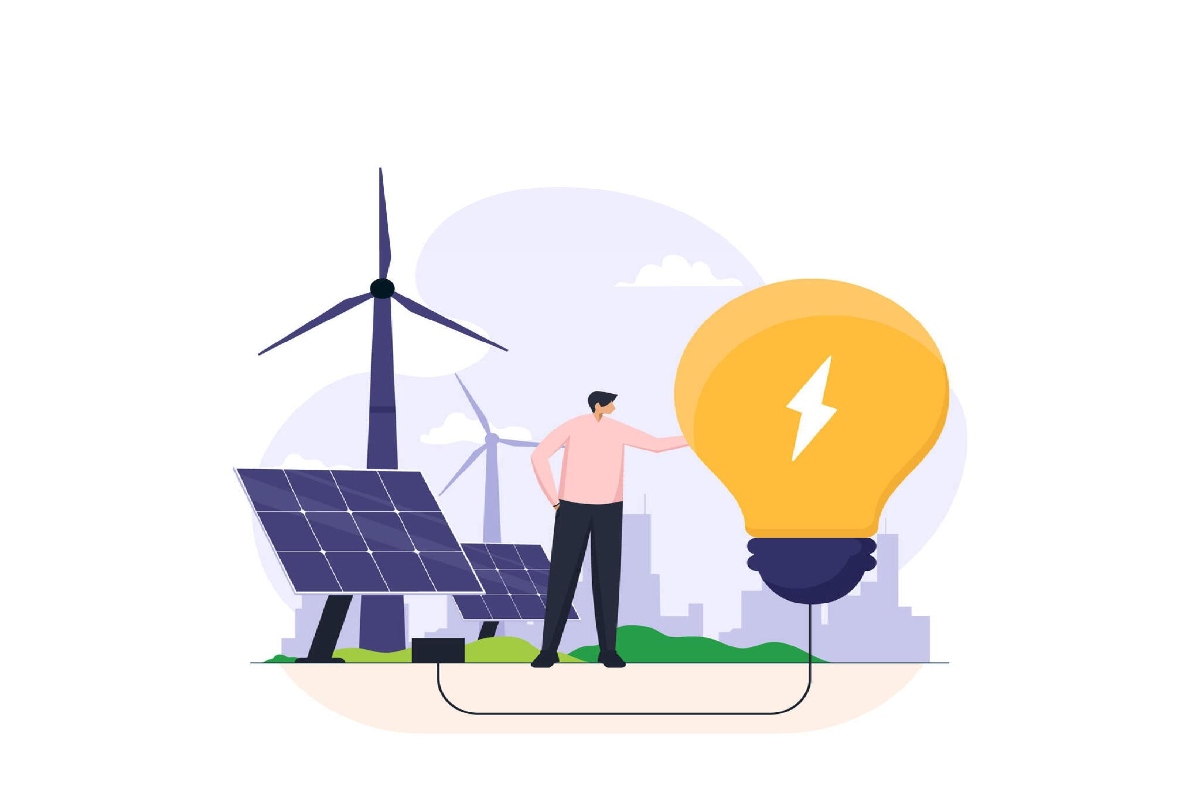The ever-evolving landscape of the tech industry frequently births revolutionary changes, not just in gadgets and software, but in the essential resources that power them. One critical resource, often taken for granted, is the power supply. As tech industries continue to expand, the demand for innovative and sustainable power supply solutions has drastically increased. This article delves into the emerging trends in power supply, showcasing how technology advancements are shaping the future.
Renewable Energy Sources

In the quest for greener solutions, tech industries are increasingly investing in renewable energy sources. Solar, wind, and hydroelectric power are no longer just alternatives but are becoming central to the power supply strategies of forward-thinking tech enterprises. This shift not only supports environmental sustainability but also ensures long-term economic benefits.
Also read: Rules of Indentation in Python
Regulatory and Policy Advancements
Technological innovations in power supply are also being supported and sometimes driven by regulatory and policy changes worldwide. Governments and international bodies are creating frameworks that encourage the adoption of renewable energy sources, energy efficiency measures, and the development of technologies like smart grids and microgrids. These legislative measures not only promote environmental sustainability but also pave the way for a more resilient and adaptable power infrastructure.
Among these advancements, the integration of programmable power supply into testing environments is gaining traction. These supplies offer precise control over voltage and current, allowing researchers and engineers to simulate various electrical conditions with accuracy and flexibility. This further enhances the tech industry’s ability to develop innovative products by closely mimicking the electrical environments in which the final products will operate.
Green Computing
As part of the broader aim to reduce carbon footprints, tech industries are adopting practices of green computing. This involves designing, manufacturing, and using devices in a way that minimizes energy consumption and reduces environmental damage. The trend toward energy-efficient processors and servers is a testament to the industry’s commitment to sustainable power use.
Smart Grid Technology
Smart grids, using artificial intelligence and IoT (Internet of Things), herald a new era in energy management. They enable real-time analysis of power supply and demand, optimizing energy distribution and reducing waste. This intelligent system ensures tech industries have a steady, efficient power supply while contributing to global efforts in energy conservation.
Decentralized Energy Systems
There is a growing interest in decentralized energy systems, which allow businesses and households to generate their own power, often through renewable sources. This not only reduces dependency on the grid but also provides more resilience and security in the power supply. For tech industries, this means greater control over their energy sources, which is crucial in maintaining uninterrupted operations.
Digitalization of Energy Systems
Digitalization is playing a pivotal role in the transformation of energy systems. By leveraging digital technologies, the energy sector is able to increase operational efficiency, improve the reliability of power supply, and reduce costs. This includes the use of digital twins to simulate energy production and distribution processes, predictive maintenance of energy equipment, and the implementation of blockchain for secure and efficient transactions in energy trading.
Battery Innovations
Battery technology, crucial for mobile devices and electric vehicles, is witnessing rapid advancements. Innovations in materials and design are making batteries not only more powerful but also faster to charge and longer-lasting. As tech industries strive for mobility and efficiency, these battery advancements are proving to be game-changers.
Enhanced Energy Storage Solutions
As the world leans more towards intermittent renewable energy sources, the importance of energy storage solutions cannot be overstated. Enhancements in energy storage technologies, including the development of more sophisticated battery systems and other forms of energy storage, are critical in managing supply during peak times and when renewable sources are not generating power. This trend is essential for stabilizing the energy grid and ensuring a consistent power supply to meet the tech industry’s demands.
Wireless Power Transmission
The concept of transmitting power without physical connectors or cables has transitioned from theory to practical applications. Wireless power transmission technology promises to revolutionize the way devices are charged, offering greater flexibility and eliminating the clutter of wires. This trend is seeing a surge in interest, particularly in consumer electronics and electric vehicle charging.
Final Thoughts
The tech industry’s hunger for power is matched by its capacity for innovation. Emerging trends in power supply are showcasing a future where energy is cleaner, smarter, and more reliable. By leveraging renewable energy, embracing smart technologies, and pushing the boundaries of battery and wireless power, the tech industry is setting the stage for a sustainable revolution in power supply. While challenges remain, the direction is clear: a greener, more efficient power supply is not just a possibility, but an inevitability in the tech world.
Also Read: The Techno Tricks for Instagram – Increase Instagram Followers



